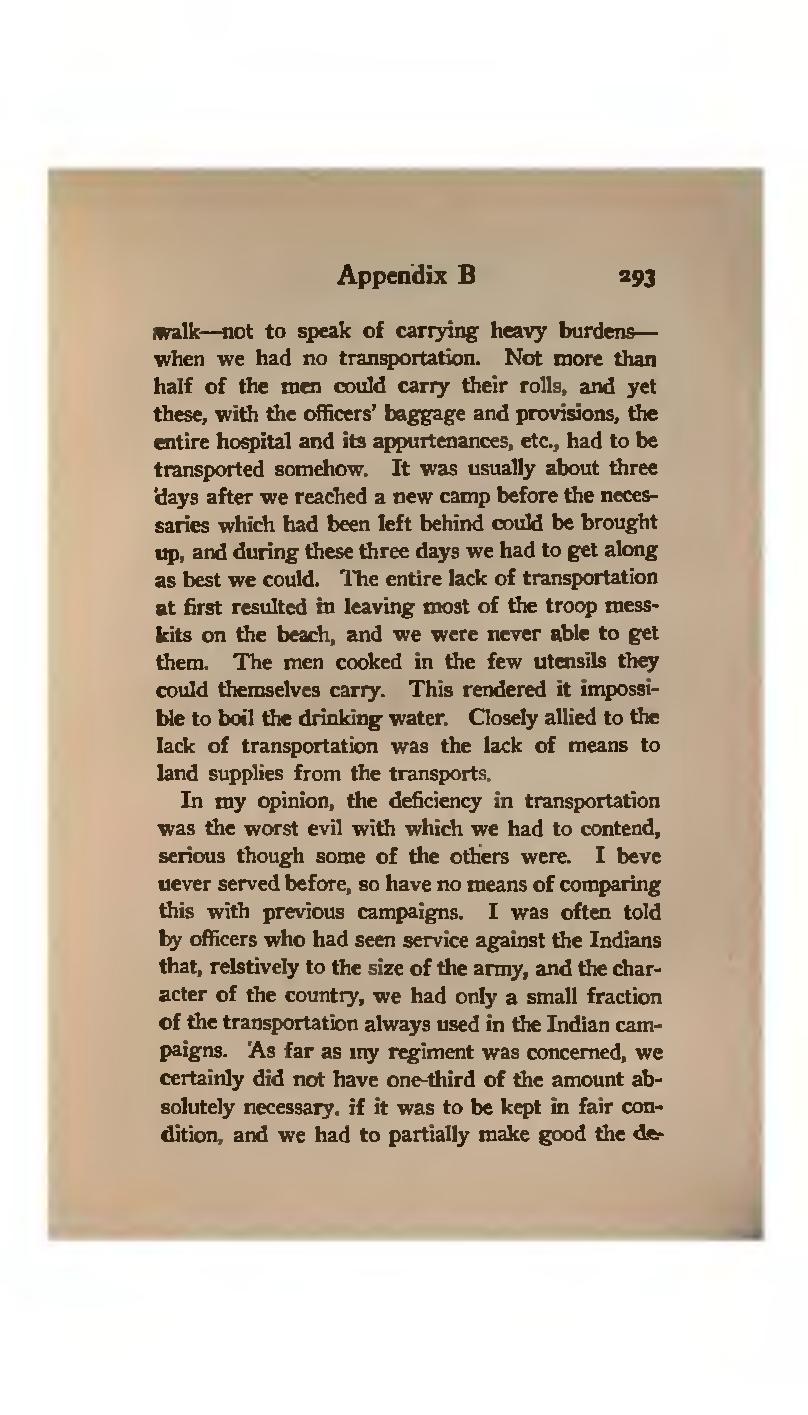walk—not to speak of carrying heavy burdens—when we had no transportation. Not more than half of the men could carry their rolls, and yet these, with the officers' baggage and provisions, the entire hospital and its appurtenances, etc., had to be transported somehow. It was usually about three days after we reached a new camp before the necessaries which had been left behind could be brought up, and during these three days we had to get along as best we could. The entire lack of transportation at first resulted in leaving most of the troop mess-kits on the beach, and we were never able to get them. The men cooked in the few utensils they could themselves carry. This rendered it impossible to boil the drinking water. Closely allied to the lack of transportation was the lack of means to land supplies from the transports.
In my opinion, the deficiency in transportation was the worst evil with which we had to contend, serious though some of the others were. I have never served before, so have no means of comparing this with previous campaigns. I was often told by officers who had seen service against the Indians that, relatively to the size of the army, and the character of the country, we had only a small fraction of the transportation always used in the Indian campaigns. As far as my regiment was concerned, we certainly did not have one-third of the amount absolutely necessary, if it was to be kept in fair condition, and we had to partially make good the de-
